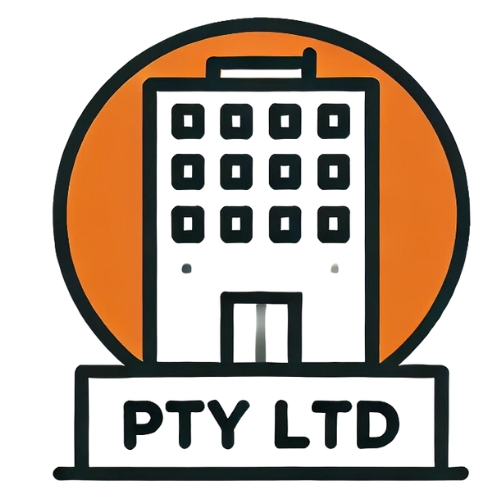
South Africa boasts a vibrant and expanding community of start-ups and entrepreneurs, brimming with potential and opportunity. While starting a business offers significant benefits, the process can seem overwhelming to some. However, with the right guidance and resources, setting up a new business can be more manageable and become a successful trajectory.
Key Takeaways
- Understanding the South African Market: Grasping local market dynamics, economic conditions, and consumer preferences is essential for tailoring strategies effectively. Understanding these aspects will help your business stand out in the competitive South African market.
- Navigating Financial Challenges: Entrepreneurs in South Africa often face financial hurdles due to limited funding and regulatory costs. Leveraging various funding sources such as crowdfunding, bootstrapping, or government incentives can support business growth and overcome financial barriers.
- Formal Business Registration and Documentation: To ensure legal compliance and operational efficiency, it’s important to register your business and maintain comprehensive documentation. Proper registration and documentation not only ensure smoother operations but also facilitate future business expansion.
About Arcadia Finance
Choose Arcadia Finance for an easy loan process without any application fees. Select from 19 reputable lenders, all adhering to South Africa’s National Credit Regulator standards, ensuring a trustworthy and tailored financial solution for you.
1. Understand the South African Market and Economy
Before launching a business in South Africa, it’s crucial to thoroughly understand the local market dynamics and economic environment. Assessing recent economic trends, consumer behaviour, and demographic information is essential for evaluating the feasibility of your business idea. Additionally, analyse the current state of the industry you plan to enter and identify what sets your business apart from existing competitors. This insight will help you tailor your strategies to local demands and pinpoint potential challenges and opportunities within the South African context.
Small Business Challenges
Starting a business in South Africa presents several challenges. Entrepreneurs often navigate the difficulties of launching new ventures amidst sluggish economic conditions and reduced business confidence. Additional hurdles include the high costs of complying with business regulations and the limited availability of initial funding.
Despite these challenges, opportunities exist for those who are ready to face them. Key considerations for entrepreneurs looking to start a business in South Africa include:
- Accessing Funding: Explore diverse funding options such as government incentives, crowdfunding, and bootstrapping to support your business growth.
- Understanding Legal Obligations: Ensure compliance with local regulations and business registration requirements to avoid legal issues and facilitate smoother operations.
- Identifying Viable Business Concepts: Conduct thorough market research to find business ideas that address local needs and stand out from the competition.
By addressing these aspects, you can better navigate the complexities of starting a business in South Africa and increase your chances of success.
Before diving into the market, knowing how to register a company in South Africa is essential. This guide offers a detailed walkthrough of the registration process, ensuring you meet all legal requirements to operate legally and effectively.

2. Identifying Your Target Market
Understanding the market more deeply helps you identify your niche and the specific customer group you want to target. Ask yourself: Who is your ideal customer? What are their preferences and needs? How will your products or services meet these requirements? A solid understanding of your target market will guide your strategic business decisions. Once you have defined your business concept, it’s important to detail it thoroughly and create a comprehensive business plan. This plan should include your mission and vision, the required capital, necessary skills, operational procedures, the range of products or services you will provide, competitor analysis, market analysis, and the unique aspects that will set your business apart.
Launching a small business can be overwhelming, but with the right guidance, you’ll be on your way to success. Get a head start with these Business Ideas to Start in South Africa, your roadmap to entrepreneurial achievement!
3. Develop a Comprehensive Business Plan
Drafting a detailed business plan is essential for any start-up. This document should outline your business goals, operational strategies, and the steps needed to achieve them, including accurate financial projections. A well-prepared business plan is vital for securing funding and attracting potential investors.
If you don’t have the initial capital to start your business, consider exploring various financing options. This might include approaching banks and other financial institutions, seeking support from private investors, or accessing government resources. In South Africa, potential sources of government financial aid include the Industrial Development Corporation and the Department of Trade, Industry and Competition’s Government Investment Incentives.
Starting a Business Without Startup Capital
Most South African businesses are typically financed by their founders, with only a few attracting investment from private investors or development finance institutions. However, there are several alternative options available for aspiring entrepreneurs.
Crowdfunding
For business owners who cannot access traditional capital sources, crowdfunding offers a viable alternative. This approach allows entrepreneurs to raise funds from family, friends, and independent investors. The main types of crowdfunding are equity crowdfunding, donation-based crowdfunding, and rewards-based crowdfunding.
Bootstrapping
Bootstrapping is a practical option for businesses that struggle to obtain financing from traditional sources like banks and venture capitalists. Strategies for bootstrapping include using personal income and savings, contributing personal effort without immediate pay, maintaining quick inventory turnover, adopting a cash-only sales model, and keeping operational costs low.
If you’re looking for financial backing to jump-start your venture, exploring startup loans in South Africa can provide the necessary capital to bring your business ideas to life.

4. Registering Your New Company
Regardless of your company’s size or profit margin, registering your business in South Africa provides several legal benefits. These advantages include protecting your business name, securing tax benefits, accessing financial support, ensuring compliance with regulations, safeguarding your assets, and enabling you to raise equity capital. Registering also simplifies administrative procedures.
Choosing a Business Structure
Selecting the right business structure is a critical decision in South Africa and depends on the nature of your enterprise. Entrepreneurs typically have three main options:

Sole Proprietor
Also known as a sole trader, this structure is simple to set up and is suitable if you plan to run the business on your own and trade under your personal name. However, it does carry risks, as there is no legal separation between you and your business.

Partnership
If you intend to start a business with a friend or colleague, a partnership might be the best choice. This structure allows for collaboration with one or more partners and requires a clear partnership agreement outlining roles, responsibilities, and financial contributions.

Company
Establishing a company creates a separate legal entity, protecting personal assets from business liabilities. This structure is advisable if your business activities involve significant financial risks.
Starting a small business involves numerous steps, and accessing government support can significantly ease this process. Learn how Government Support to Start a Business can provide essential resources, guidance, and funding to streamline your journey toward entrepreneurship.
5. Documents for Small Businesses
Many business owners underestimate the importance of detailed record-keeping for small enterprises, yet it is crucial for ensuring compliance. Proper documentation not only aids in strategic planning and boosts operational efficiency but is also essential when seeking funding.
| Category | Documents Required |
|---|---|
| Essential Documents for New Businesses | – Tax clearance certificate – National identification card – Company registration documents – Recent business and personal bank statements (last six months) – Lease agreement for business premises – Proof of residence – Financial statements for the past year – Identification documents of owners, marriage certificates, and company registration documents – Lease or mortgage agreement – Current shareholder agreements, share register, proof of address, and any required business licenses, accreditations, or registrations – Broad-Based Black Economic Empowerment (B-BBEE) certificate |
| Additional Documents for Investment | – Business plan or project proposals – Income and cash flow projections – Details of outstanding debtors – Signed customer agreements – Most recent annual financial statements – Latest VAT statements – Management accounts – Recent bank statements |
| Opening a Business Bank Account | – A valid ID for the business owner and any other account signatories – Proof of the business address, such as a utility bill. If you’re a sole proprietor, the owner’s residential address can be used – Business bank statements from the last three months – Documentation confirming registration with the Companies and Intellectual Property Commission (CIPC) |
Kickstart your entrepreneurial journey with confidence by reading What Are Business Grants?, a brilliant guide to securing crucial funding and taking your first bold steps into business ownership.

6. Understand Tax and Legal Obligations
Running a business involves substantial responsibilities, particularly regarding staff management. If you employ individuals earning more than R40 000 annually, you must register for Pay As You Earn (PAYE). Additionally, if your payroll exceeds R500,000 per year, you are required to pay a Skills Development Levy (SDL).
For a comprehensive overview of your tax and legal obligations, visit the SARS website to avoid potential penalties. This will help you focus more on your business operations and growth.
- Securing a Tax Identification: All companies must register with the South African Revenue Service (SARS) to comply with tax regulations. Register within 60 days of starting your business to receive your tax number.
- Understanding VAT Registration: Most new businesses are not required to register for VAT until their revenue exceeds R1 million over 12 months. However, obtaining a VAT number early can be advantageous. If your revenue exceeds R50,000 within a year, voluntary VAT registration may offer benefits when dealing with other VAT-registered entities. Registering for VAT before you start trading ensures you are recognised as a legitimate, tax-compliant business.
- Acquiring Operational Certificates and Licences: Depending on your industry, specific licences may be required for legal operation. Common sectors needing such licences include food services, health and wellness centres, entertainment venues like cinemas or theatres, and businesses involved in alcohol sales or gaming and adult entertainment.
Before diving into funding or planning, it’s critical to handle legalities. Learn everything you need about How To Register A Company Online In South Africa, from CIPC registration to documents needed, so your business begins on a solid, legal foundation.
Is Business Registration Necessary in South Africa?
In South Africa, all business entities must register with the South African Revenue Service (SARS) and obtain an income tax reference number. This registration is mandatory and should be completed within 60 days of starting business activities. Non-compliance with this requirement can lead to fines and other penalties. Adhering to these regulations is essential to prevent legal issues and to focus effectively on your business operations. Ensuring compliance not only maintains your standing with tax authorities but also supports the stability of your business’s operational framework.
Conclusion
Starting a business in South Africa offers significant rewards despite the challenges. By gaining a deep understanding of the local market, developing a detailed business plan, and strategically managing funding and regulatory requirements, entrepreneurs can position themselves for success. South Africa provides a supportive environment for new businesses, offering numerous opportunities for innovative and well-informed entrepreneurs. With the right approach and resources, your business can flourish, positively impacting both the country’s economy and your professional journey.
Frequently Asked Questions
To start a business in South Africa, first conduct thorough market research to understand local consumer behaviour and industry trends. Next, develop a detailed business plan that outlines your objectives, strategies, and financial forecasts. Finally, register your business with the Companies and Intellectual Property Commission (CIPC) to gain legal recognition and protect your business name.
Funding can be obtained through various channels. Consider applying for loans from banks, seeking investments from private sector entities, or exploring government incentives, such as those provided by the Industrial Development Corporation or the Department of Trade, Industry and Competition. Additionally, crowdfunding and bootstrapping are practical options for starting with limited resources.
All businesses must comply with South African tax laws, including registering with the South African Revenue Service (SARS) for an income tax number. Depending on your business type, you may also need specific licences and permits. It’s important to consult with legal experts to ensure compliance with local regulations and avoid penalties.
A business plan is crucial as it acts as a roadmap for your business, outlining the steps needed to achieve your goals and track progress. It is also essential for securing funding, as potential investors or lenders will require a detailed plan to evaluate the viability of your venture.
To identify your target market, research and understand who your potential customers are, including their needs, preferences, and purchasing behaviour. Use tools such as customer surveys, focus groups, and market analysis reports to gather this information. Tailoring your products or services to meet the specific demands of your target market will improve your business’s chances of success.
Fast, uncomplicated, and trustworthy loan comparisons
At Arcadia Finance, you can compare loan offers from multiple lenders with no obligation and free of charge. Get a clear overview of your options and choose the best deal for you.
Fill out our form today to easily compare interest rates from 19 banks and find the right loan for you.


